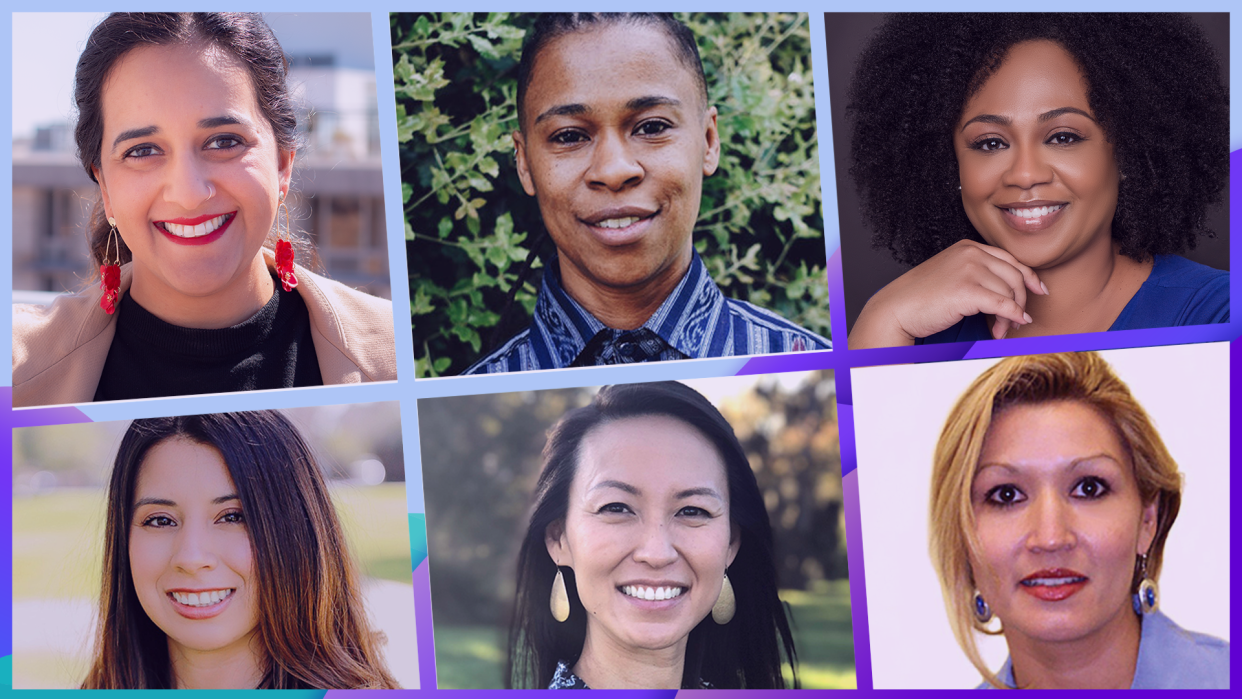Pandemic has had 'alarming' effect on marginalized communities. Here's why culturally-specific support can be critical

The many, many stresses of this past year have had a negative impact on people's psyche: As of late June 2020, 40 percent of U.S. adults reported struggling with mental health or substance abuse. More recently, a Yahoo/YouGov poll found that more than 40 percent of people reported symptoms of depression and anxiety since the start of the pandemic.
And when looking specifically at BIPOC (Black, indigenous, people of color) communities or reports from the LGBTQ community, the impacts have been particularly severe.
According to one survey, Black and Latinx individuals have been facing high COVID-related mental health risks, with both groups reporting such concerns at a rate of 10 points higher than white respondents. Another report, focused on the impacts of racism and protest violence in the wake of Black Lives Matter actions across the country, revealed that the prevalence of post-traumatic stress disorder and depression after such collective actions are comparable to the impacts of natural disasters, war and terrorist attacks.
The skyrocketing number of anti-Asian hate crimes linked to the COVID crisis, meanwhile — with attacks that rose by nearly 150 percent in 2020 — has led to its own cultural mental health crisis. Also facing disparate risks are children of immigrants, with reports of psychological distress nearly double (10.1 percent) that of their first-generation immigrant parents, and issues that vary by gender and ethnicity — with the children of Asian Americans, Pacific Islanders and Latinx immigrants facing significantly higher rates of depression, anxiety and PTSD than their white European counterparts.
Of Native American or Alaskan Natives, meanwhile, 19 percent have reported having had a mental illness in the last year, and Mental Health America estimates indigenous people in America report psychological distress 2.5 times more than the general population — with a suicide rate, for teens 15 to 19, double that of non-Hispanic whites.
Being part of a sexual or gender minority group also comes with increased mental health risks: Recent data showed that 74 percent of LGBTQ people say worry and stress of the pandemic have negatively impacted their mental health, compared to 49 percent of those who are not part of that group. And findings from the Trevor Project’s 2021 National Survey on LGBTQ Youth Mental Health, released Wednesday, reveal the following: Of the nearly 35,000 LGBTQ youth (13-24) surveyed across the U.S., 42 percent of LGTBQ respondents (including more than half who are transgender who nonbinary) seriously considered taking their own life in the past year, while 70 percent stated their mental health was "poor" most or all of the time during the pandemic, and nearly half reported wanting mental health care but were not able to get it.
The suicide risk is typically higher, the Trevor Project found, if you are also a person of color: Out of those surveyed, 12 percent of white youth attempted suicide compared to 31 percent of native/indigenous youth, 21 percent of Black youth, 21 percent of multiracial youth, 18 percent of Latinx youth, and 12 percent of Asian/Pacific Islander youth.
"Not only are these findings unsurprising and alarming, I also wonder if the stats are actually higher," Erica Woodland, founder of the National Queer and Trans Therapists of Color Network, tells Yahoo Life in response to the Trevor Project’s survey. Through his work as a therapist and organizer, Woodland focuses on awakening people to the idea of intergenerational trauma — trauma passed down through generations in families and cultures — to provide context which could lessen self-judgment and lead to more positive healing.
"When we have awareness of these patterns, that means we’re able to change them," Woodland says. "'History is not the past, it is the present,' goes the James Baldwin quote. And it will be the future if we do not intervene."
Luckily, there are many therapists out there who are well-versed in the needs of specific marginalized communities. Yahoo Life interviewed just a handful to highlight Mental Health Awareness Month, happening now: Woodland; Sahaj Kohli, founder of Brown Girl Therapy, for children of immigrants; Joy Harden Bradford, founder of Therapy for Black Girls; Carrie Johnson, director of Seven Generations at United American Indian Involvement; Jenny Wang of Asians for Mental Health; and Adriana Alejandre, founder of Latinx Therapy. (Find all of the interviews here.)
They're all working towards increased awareness of mental health issues — something we've seen grow by leaps and bounds during the pandemic, partly through the many celebrities who have spoken out publicly about their own struggles, lessening the stigma of mental health, which might just have been a pandemic silver lining.
Read more from Yahoo Life:
Want lifestyle and wellness news delivered to your inbox? Sign up here for Yahoo Life’s newsletter.



